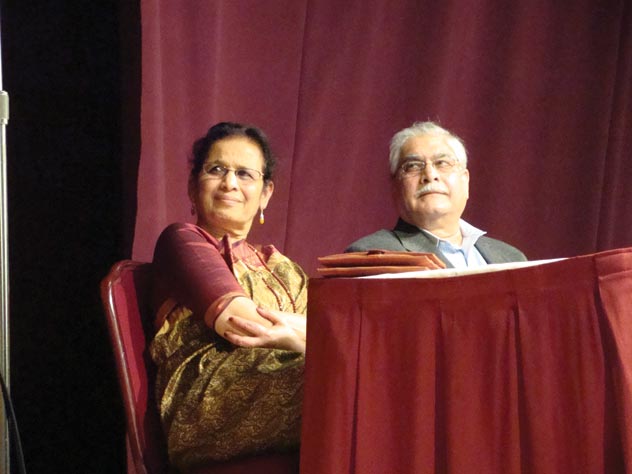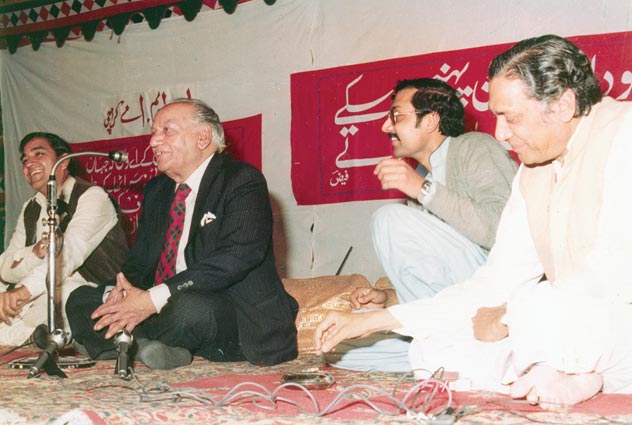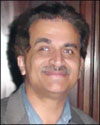|
|
|
ADVERTISEMENTS
|
|
PREMIUM
- HAPPY HOLIDAYS!
- Siliconeer Mobile App - Download Now
- Siliconeer - Multimedia Magazine - email-Subscription
- Avex Funding: Home Loans
- Comcast Xfinity Triple Play Voice - Internet - TV
- AKSHAY PATRA - Bay Area Event - Sat. Dec 6
- Calcoast Mortgage - Home Loans
- New Homes in Silicon Valley: City Ventures - Loden Place - Morgan Hill
- Bombay to Goa Restaurant, Sunnyvale
- Buying, Sellling Real Estate in Fremont, SF Bay Area, CA - Happy Living 4U - Realtor Ashok K. Gupta & Vijay Shah
- Sunnyvale Hindu Temple: December Events
- ARYA Global Cuisine, Cupertino - New Year's Eve Party - Belly Dancing and more
- Bhindi Jewellers - ROLEX
- Dadi Pariwar USA Foundation - Chappan Bhog - Sunnyvale Temple - Nov 16, 2014 - 1 PM
- India Chaat Cuisine, Sunnyvale
- Matrix Insurance Agency: Obamacare - New Healthcare Insurance Policies, Visitors Insurance and more
- New India Bazar: Groceries: Special Sale
- The Chugh Firm - Attorneys and CPAs
- California Temple Schedules
- Christ Church of India - Mela - Bharath to the Bay
- Taste of India - Fremont
- MILAN Indian Cuisine & Milan Sweet Center, Milpitas
- Shiva's Restaurant, Mountain View
- Indian Holiday Options: Vacation in India
- Sakoon Restaurant, Mountain View
- Bombay Garden Restaurants, SF Bay Area
- Law Offices of Mahesh Bajoria - Labor Law
- Sri Venkatesh Bhavan - Pleasanton - South Indian Food
- Alam Accountancy Corporation - Business & Tax Services
- Chaat Paradise, Mountain View & Fremont
- Chaat House, Fremont & Sunnyvale
- Balaji Temple - December Events
- God's Love
- Kids Castle, Newark Fremont: NEW COUPONS
- Pani Puri Company, Santa Clara
- Pandit Parashar (Astrologer)
- Acharya Krishna Kumar Pandey
- Astrologer Mahendra Swamy
- Raj Palace, San Jose: Six Dollars - 10 Samosas
CLASSIFIEDS
MULTIMEDIA VIDEO
|
|
|
|
|
CULTURE
Remembering Faiz: ICC Program
San Francisco Bay Area Urdu aficionados delighted in an afternoon of remembrance and celebration that recognized legendary poet Faiz Ahmed Faiz and singer Iqbal Bano at the India Community Center, writes Ras Hafiz Siddiqui.

(Above): Hamida Chopra and Tashie Zaheer at an event March 7 in remembrance of Faiz Ahmed Faiz and Iqbal Bano. About 200 Indians and Pakistanis attended the event hosted at the India Community Center in Milpitas, Calif.
To the delight of San Francisco Bay Area lovers of the Urdu language, a memorable afternoon program was held March 7 at the India Community Center in Milpitas, Calif., recognizing Faiz Ahmed Faiz, one of the 20th century’s finest poets and the unforgettable voice that gave his verses articulation, that of Mohtarma Iqbal Bano. And in this day and age of divisions of various kinds, it was heartening to witness over 200 Indians and Pakistanis getting together under one roof to appreciate their tehzeeb via both poetry and song.
Spearheaded by Hamida Chopra and sponsored by Computers & Structures Inc. of Berkeley, Calif., the afternoon started off with Hamida reflecting on both the importance of Faiz and Bano in our South Asian culture and language idiom, and also by sharing the fact that she has been lucky enough to have met them both, Faiz on his visit to the Bay Area in the late 1970s and Iqbal Bano in Lahore, Pakistan, in 2005. Faiz died in 1984 and Iqbal Bano left us last year.
Chopra invited Tashie Zaheer to the stage to preside over the program.
But it was our community youth that created a sense of joy and wonder.
The first presenter Anupama Chandratreya came on to the stage with words of solitude in “Dashte Tanhain Mein” and then a dua (prayer) “Aayey haath uthain hum bhi, hum ginhay rasmey dua yaad nahin” [Let us, too, raise our hands in prayer, (even) us who do not remember the rituals].
Hamida came back to add that Faiz Sahib’s pen and poetry gave a voice to oppressed people in the world and she also presented “Khuda woh waqt na laayay” (May God not bring such a time) one of Faiz’s laments. She next invited her daughter Nasreen Ghazala who presented her own experiences on meeting these two titans of their respective crafts, Faiz and Iqbal Bano, experiences that not only left her enriched but somewhat amused as well. She said that Faiz Sahib seemed like any ordinary man but she could feel her mother’s extraordinary excitement when he came to dinner at their house in the late 1970s. She also reflected on their visit to Lahore in the year 2005 where she met Iqbal Bano through Neelo Aunty, and described her as a caring and loving person.

(Above): File photo of Faiz Ahmed Faiz (seen here wearing a black suit)
Next Sangeeta Shenoy presented both the spiritual and romantic sides of Faiz with “Sabhi kuch hai tera diya huwa” followed by “Tum aayay ho to na shab-e-intizaar guzri hai” (You have arrived love, my longing is finally over) which were widely appreciated.
But that romance did not last long as Hamida Sahiba came back with the scenario, Faiz, jail ki salakhon sai ( Faiz, from behind the prison bars), explaining how some of Faiz’s best poetry originated after his months in solitary confinement. His being a socialist did not help him, as he was arrested and jailed, charged along with a group of others under what became famous as the Rawalpindi Conspiracy Case. Nisar main teri galiyon ke aay watan ke jahaan, Chali hai rasm ke koi na sar uthaa kay chalay, best describes his feelings of that time. When former East Pakistan rose in defense of their rights in the 1950s, it might have been prudent to listen to what Faiz Sahib was writing at the time.
Deepak Bhatia followed with an enthusiastic recital, first of a lesser known nazm followed by “Bol, kay lab azaad hain teray” (Speak, your lips are free) which drew quite a response from the audience. Deepti Warrier next presented “Kab theray ga dard ai dil, …kab subhay sukhan ho gi?”, questions still quite relevant today.
Hamida Sahiba came back to elaborate on her meeting Mohtarma Iqbal Bano in Lahore. She said that Mohtarma from Delhi was taught by Ustad Chand Khan. She left Delhi for Multan (in Pakistan) at a very young age and kept her craft alive after marriage. She also relayed Iqbal Bano’s fame as both an Urdu and a Persian singer and her lasting admiration of Begum Akhtar, India’s queen of Ghazal singing. Tearfully, Hamida Sahiba recalled the telephone call last year which informed her that Iqbal Bano has passed away.
Kohinoor Chakravarty next presented a work of Faiz that has become a kind of anthem for South Asian immigrants. “Meray dil meray musafir” (My heart the wandering passenger) expresses the angst of displacement in Urdu like no other. Next, Kohinoor presented “Kab tak dil ki khair manayen?” another reflection on current events.
Cal Berkeley Professor Anil Chopra, the lesser (or better) half of the Chopra household (an interesting question?) next shared with the audience the visit of Faiz Sahib to their home here in the Bay Area during the 1970s. Logistical problems arose at the last minute for the visit and Faiz Sahib only agreed to come to their house for 15 -20 minutes, much to the ire of Mrs. Hamida Chopra. But with some quick thinking by Anil, the visit turned out to be for almost three hours, and more details of how that change of heart occurred will not be given here! Anil also presented Faiz Sahib’s work “Raqeeb Se” with a great deal of enthusiasm. He also took the opportunity to thank CSI’s Ashraf Habibullah and Syed Hasnain for sponsoring the event.
Hamida Chopra next presented her closing work of Faiz, a “Marsiah-e-Imam Hussain” with the line “Voh zulm mein kamil, hum sabr mein kamil” (They are complete in their ability to inflict cruelty while we excel in our patience to completely resist). She then invited the sadr or presiding presenter of the event Tashie Zaheer to close the program. Tashie Sahib reflected on Faiz’s romance with revolutions. He said that Faiz Sahib’s poetry was both for the scholars and the common people (tangay walas and rickshaw walas). He added that in his romance and sadness, hope remained eternal in Faiz’s expression. He spent his life for his people and through him we find their aspirations. “Faiz Sahib ka kalam, iss dunya ki kahani bhi hai” (Faiz’s poetry is also the story of this world). Tashie Zaheer closed by reciting the last Ghazal written by Faiz Sahib before his death in 1984.
Before closing here, this writer would like to introduce the readers here to a new project started in Lahore, Pakistan by the Faiz Foundation called Faiz Ghar (http://faizghar.org/) which is seeking to preserve the legacy of Faiz Sahib and his wife Alys for our future generations. A modest home has been converted to display the life work of this great humanitarian who suffered for many years to bring attention to injustice suffered everywhere in the world.
To conclude here, as Anupama came back to recite what has been described by some as Faiz Ahmed Faiz’s greatest work “Hum dekhain ge” (We shall see) to close this beautiful afternoon event, all this writer can add, also in Faiz Sahib’s words is “Chale chalo ke woh manzil abhi nahiin aayi” (Let us keep moving, our destination has not arrived).
|
 Ras Hafiz Siddiqui is a South Asian American writer who lives in Sacramento, Calif. Ras Hafiz Siddiqui is a South Asian American writer who lives in Sacramento, Calif.
|
|
|
|
|
|